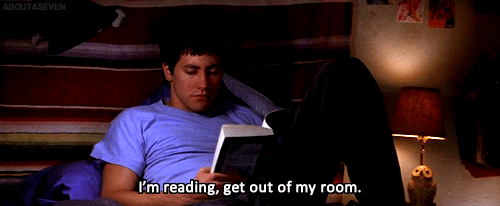There’s a growing trend to refer to constant business operations as 24/7 rather than 24×7. For math-savvy individuals, this is a headdesk-worthy trend.
Blog Archives
Dr. David Dunning is already known for the infamous Dunning-Kruger Effect, a phenomenon that is of core importance to organizational theory: People who are incompetent in a given task tend to overestimate their ability, and tend to be resistant to evidence and feedback about their incompetence.
This inability of the less competent to assess their own ability extends to interpersonal assessments. As Dr. Dunning puts it, “To the extent that you are incompetent, you are a worse judge of incompetence in other people.”
We call this phenomenon Dunning Blindness, and would paraphrase the principle this way: The less competent are generally incapable of recognizing the more competent. Think of it in terms of color vision. If Jay can only see in black and white, he’s not going to be a very good judge of the decorating skills of Bob, who has perfect color vision.
As you can imagine, Dunning Blindness has enormous implications for hiring, placement, and promotion. In fact, it likely accounts for a significant portion of inefficiency within organizations, if not a majority of it.

 neïgeté – The childish belief that it’s going to snow.
neïgeté – The childish belief that it’s going to snow.

-zelia [prefix from Greek ζῆλος “rivalry”] /ZEEL-ee-a/ similar to the suffixes –mania, –philia, and –phobia, but meaning jealousy of the suffixed noun.
EX: scandizelia [noun] Jealousy of Scandinavia. “The independence movement in Scotland has been driven by a somewhat misguided scandizelia.”

 “Hey buddy. My eyes are up here!” – Gift Horse
“Hey buddy. My eyes are up here!” – Gift Horse

 Ever get furious about a book that was too long for its own good, or about a book that was full of falsehoods, or about a book you thought was great but other people didn’t care for?
Ever get furious about a book that was too long for its own good, or about a book that was full of falsehoods, or about a book you thought was great but other people didn’t care for?
Okay, so maybe “rage” is a strong word for today’s lit links, but there’s something of frustration about them all.
First we have author Ian McEwan complaining that very few novels earn their length, and that he prefers shorter works that (aligning with the ethos of Poe) can be read at one sitting. (Good news for those of us who aren’t afraid to write novellas!)
The Atlantic takes on non-fiction publishing with a piece on the lack of rigorous fact-checking, which calls into question whether most non-fiction should be more honestly marketed as fiction.
National Public Radio examines how F. Scott Fitzgerald‘s The Great Gatsby (in the fine American tradition of Moby-Dick) went from flop to The Great American Novel.
Lastly, what if you learned that some of your favorite authors were writing novels that were going to be sealed away in a vault for a hundred years so that you’d be long dead before anyone could read them? Well, it’s happening! Rage on!
_
Style guide: Texts, performances, and periodicals (including websites) are italicized. Key persons are in bold.

 Bikram Yogurt (heated to 105°F for 90 minutes) … not such a good idea.
Bikram Yogurt (heated to 105°F for 90 minutes) … not such a good idea.

 Today’s links are all about fairness and seeing both sides of the issue!
Today’s links are all about fairness and seeing both sides of the issue!
♦ We all know that book jacket designers are deeply influenced by the content of a book, but did you know the influence can also go in the other direction?
♦ In the interest of fairness, the Cleveland Plain Dealer published two sides of the e-book debate: librarian Luren Dickenson‘s top 10 reasons to give e-books a try, and bookstore owner Harriet Logan‘s argument that e-books can never match physical books for beauty and collectibility. (Check below the jump for an unfortunate glitch in this story.)
And, for a humorous take on the issue, check out Ikea’s new ad for the “bookbook.”
♦ On the subject of access, we recently learned that a key work of Copernicus that was long thought lost has now been found! But, we also learned that book privileges long available to prison inmates have now been lost.
And Margaret Atwood‘s latest book? None of us will likely ever read it because it’s scheduled for publication in 2114! How is that fair?
_
Style guide: Texts, performances, and periodicals (including websites) are italicized. Key persons are in bold. Continue reading

 If your fingers hurt too much to squeeze a bike horn in a dark place, you might have Harpo Tunnel Syndrome.
If your fingers hurt too much to squeeze a bike horn in a dark place, you might have Harpo Tunnel Syndrome.

 To get with the loving and giving, we start off with two bits of good news for folks on the autism spectrum.
To get with the loving and giving, we start off with two bits of good news for folks on the autism spectrum.
First, a little Guardians of the Galaxy anecdote about how much of a difference it can make to have someone in a story to identify with.
And then, the first comic book hero explicitly written as a person with autism.
And now, to the book loving and suggestion giving. Here is a list of lists of links to lists of books!
